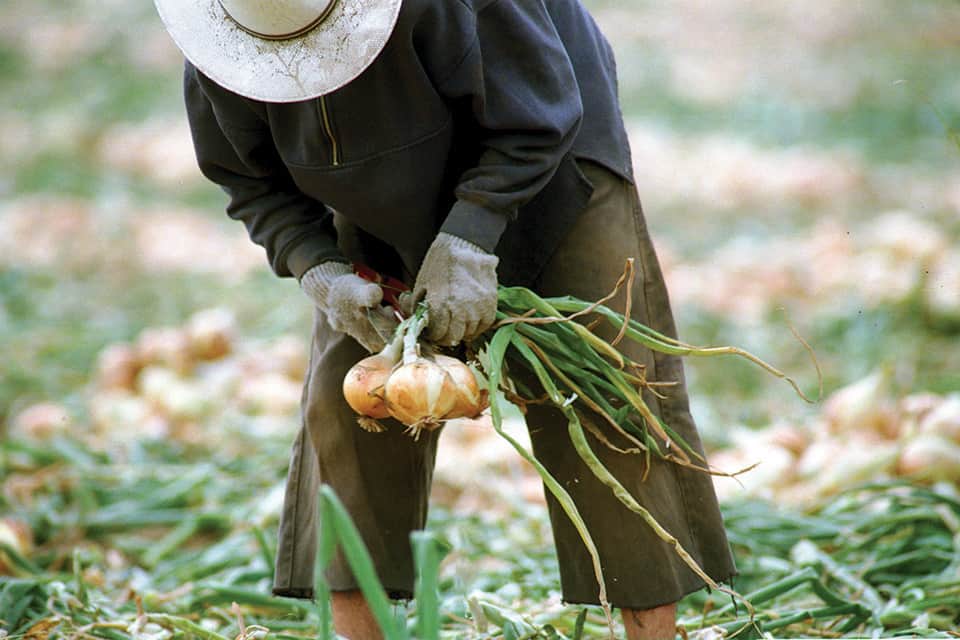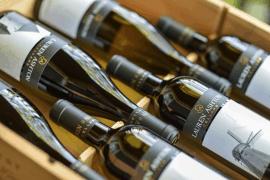Peeling back the layers of the Walla Walla sweet onion
written by Corinne Whiting | photography by Greg Lehman
For those in the know, Walla Walla is synonymous with two palate-pleasing products: wine, of course, and sweet onions. Not as many people realize, however, that the Walla Walla sweet onion is Washington’s official vegetable.
This gem’s mild taste doesn’t come from sugar, but its low sulfur content (half that of an ordinary yellow onion). It is also cholesterol- and sodium-free plus full of vitamin C. For more than a century, the industrious Locati family has devoted its livelihood to this regional treasure.
In the southeastern corner of the state and set at the foot of the Blue Mountains, Walla Walla—a Native American word meaning “many waters”—has rich history, abundant natural beauty and an alluring Wild West-meets-chic-culinary culture. Thanks to the region’s many trees and moderate climate, Walla Walla sweet onions have survived since the late 1800s, when French soldier Peter Pieri first brought a seed from Corsica, Italy.
At a time when Italian immigrants made up the core of Walla Walla’s gardening industry, Pieri and his neighbors planted the seed and were impressed by the new onion’s winter hardiness. One of Pieri’s employees—Joe Locati, the grandfather of today’s owner, Michael Locati—arrived in the Walla Walla Valley in 1905 from Milan. Not knowing he was launching a successful business empire, Joe started his own farm in 1909. Over many decades and several generations, the “French” onion developed through the process of meticulous hand selection of each year’s crop, ultimately ensuring extraordinary sweetness, a larger size and a distinctive shape.
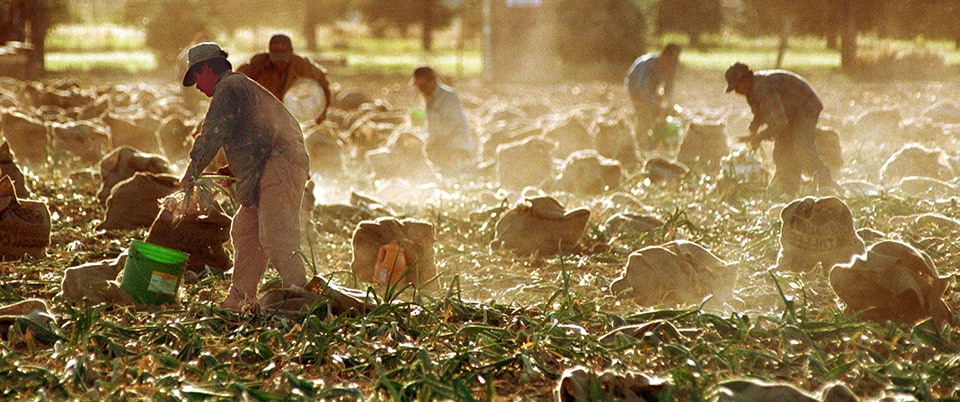
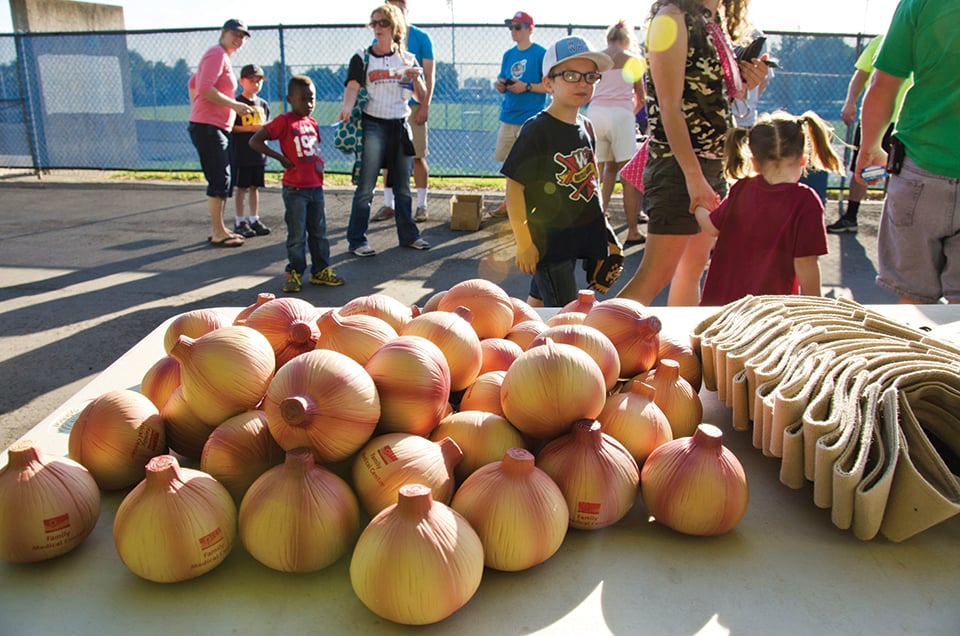
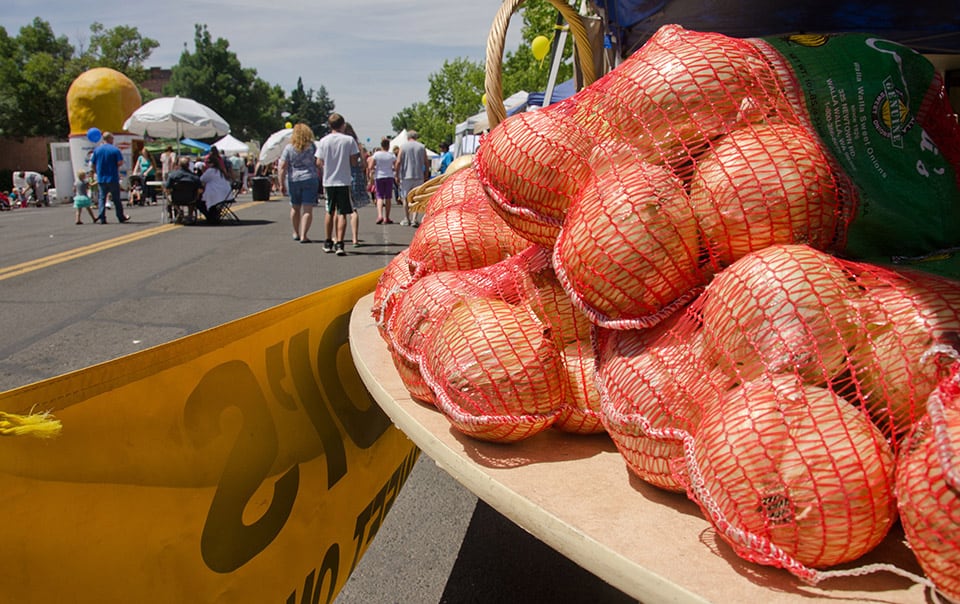
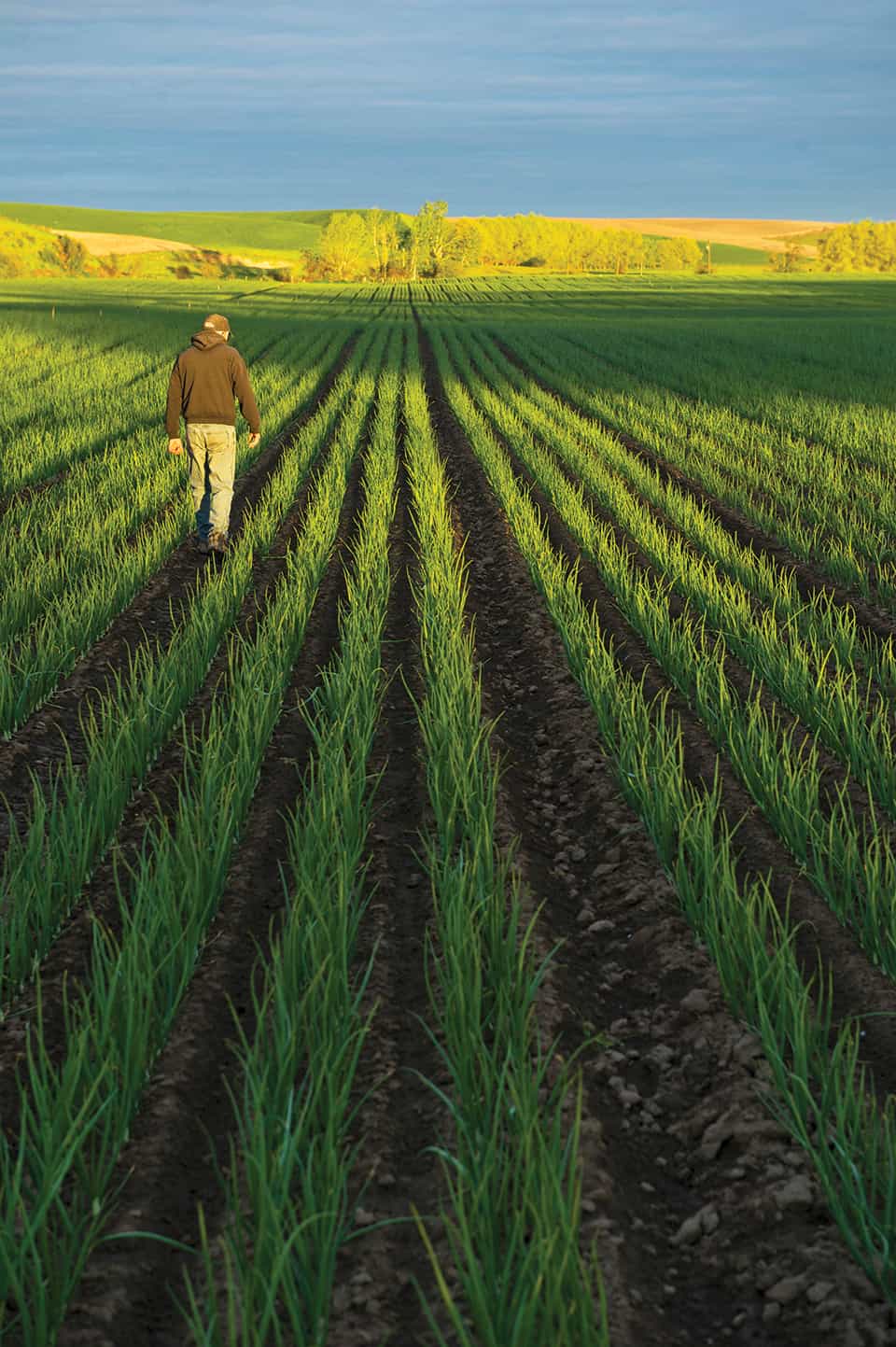
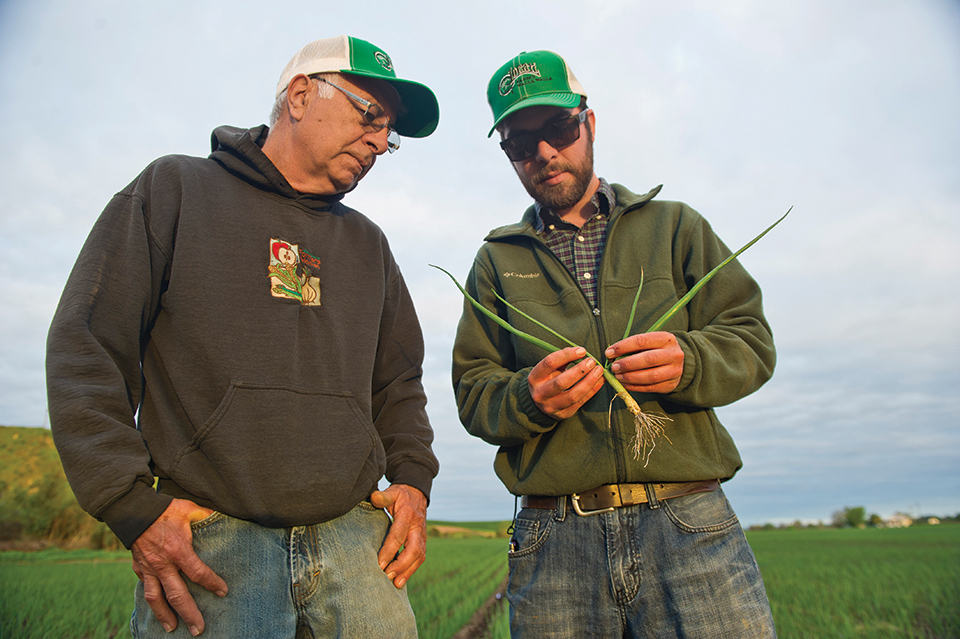
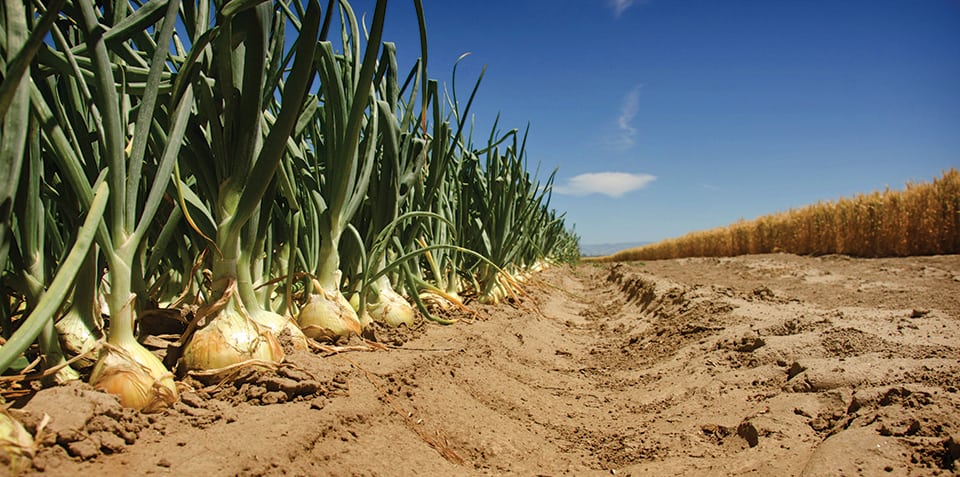
By the 1940s, Joe’s sons, Ambrose and Pete, took over their father’s farm, making history by opening the valley’s first onion-packing shed in 1949. “Everyone else started to follow along,” said Michael Locati, who today carries on the family legacy as a grower, packer and shipper.
While the original varieties passed down from his grandfather remain, innovations improve each year’s product. Important milestones include when Walla Walla Onion growers united in 1995 to form Federal Marketing Order No. 956 to protect their popular industry; this established a designated production area and regulates what can be legitimately marketed as “Walla Walla Sweet Onions.” In 2003, Locati and two partners developed Walla Walla River Packing and Storage, a state-of-the-art onion curing and packing facility. Locati said this allows them to regulate such crucial factors as temperature, humidity and airflow.
Each harvest begins in mid-June and continues until mid-August; the Locati Farms website offers online orders from May through mid-August (or until sold out). Locati said his family’s industry continues to thrive thanks to a fortunate “three-pronged situation.” First, he credits the variety, adapted from those initial seeds. Today that translates to “no breeding, no GMOs … what we have is an heirloom variety,” he explained. Second, Locati applauds Walla Walla’s soil and climate, which he calls “very conducive” to successfully growing this crop. Lastly, his team has worked hard to find the best fertilizers and uses as few pesticides as possible.
Locally grown onions steal the show at Walla Walla’s seasonal downtown farmers market and at the 33rd Sweet Onion Festival, which returns June 17. During this festive event marked by delectable dishes, live music and family-friendly fun, the community celebrates its state vegetable with whimsical games like sweet onion sack races and the “bald as an onion” contest. Who ever said vegetables can’t be fun?
In addition to selective grocery stores and eateries around the state, Locati sources to Walla Walla restaurants such as Whitehouse-Crawford, Brasserie Four and The Marc, The Marcus Whitman’s restaurant. Grant Hinderliter, executive chef of The Marc Restaurant, relishes using Walla Walla sweets from the Locatis because “they’ve been growing onions and farming the valley for three generations … and can offer great historical perspective and knowledge.”
Hinderliter takes a broad perspective of the sweet onion, preparing them as sweet onion ice cream or simply caramelizing the veggies. In spring, the kitchen uses Walla Walla sweets that haven’t yet finished growing, called “spring onions.” With tender and edible stalks still attached, the onions get split and grilled. The team insists they’re delightful when braised in butter or served alongside seafood. One of Hinderliter’s favorite in-season tricks involves creating a sweet onion and balsamic jam, allowing the sweetness of the onion to complement the acidity of the vinegars. “In our opinion, there is no better way to represent our town and surrounding area,” Hinderliter said.
“Walla Walla sweet onions are a favorite for many chefs across the country when it comes to selecting an onion with a consistent, sweet flavor,” said chef David Buchanan of Tulalip Resort Casino’s Blackfish Wild Salmon Grill. “It adds that little something extra to the recipe and helps to bump up the flavor and complexity of the dish.”


